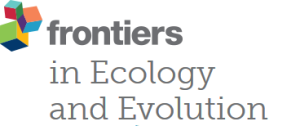Document type: scientific journal published in Frontiers in Ecology and Evolution
Authors: Laure-Anne Poissonnier, Catherine Tait, Mathieu Lihoreau
Preview: It is often assumed that social life imposes specific cognitive demands for animals to communicate, cooperate and compete, ultimately requiring larger brains. The "social brain" hypothesis is supported by data in primates and some other vertebrates, but doubts have been raised over its applicability to other taxa, and in particular insects. Here, we review recent advances in insect cognition research and ask whether we can identify cognitive capacities that are specific to social species. One difficulty involved in testing the social brain hypothesis in insects is that many of the model species used in cognition studies are highly social (eusocial), and comparatively little work has been done in insects that live in less integrated social structures or that are solitary. As more species are studied, it is becoming clear that insects share a rich cognitive repertoire and that these abilities are not directly related to their level of social complexity. Moreover, some of the cognitive mechanisms involved in many social interactions may not differ from those involved in non-social behaviors. We discuss the need for a more comparative and neurobiologically grounded research agenda to better understand the evolution of insect brains and cognition.





